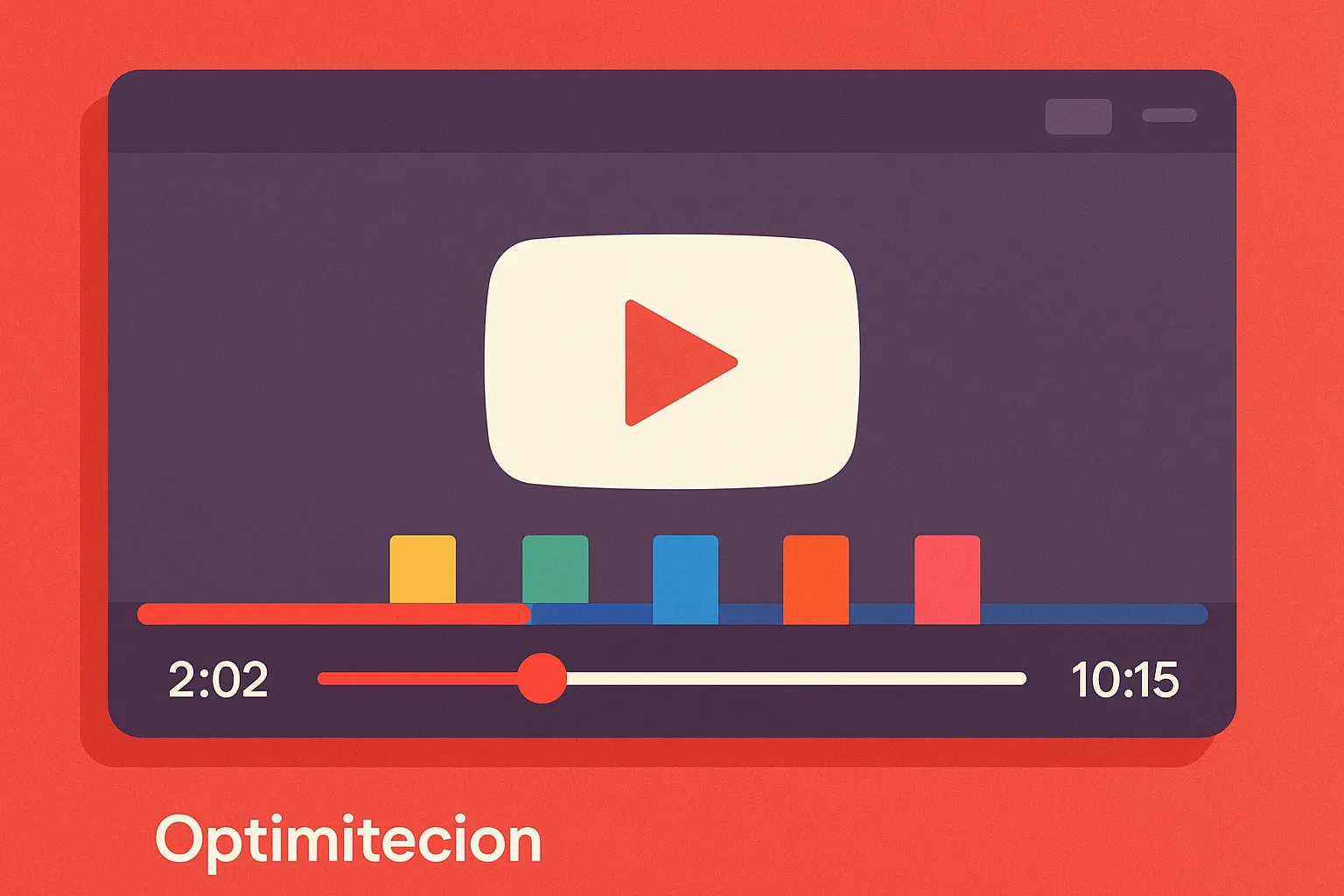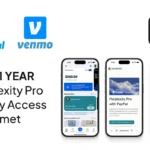Now Reading: 12 Best Platforms to Sell Digital Products That Drive Sales
-
01
12 Best Platforms to Sell Digital Products That Drive Sales
12 Best Platforms to Sell Digital Products That Drive Sales

Finding the best platforms to sell digital products can make all the difference between struggling to get noticed and building a thriving online business. In this comprehensive guide, we’ll explore the best platforms to sell digital products, comparing their features, pricing structures, and ideal use cases. From beginner-friendly options to advanced solutions for established creators, you’ll discover which platform aligns perfectly with your specific needs and business goals.
Sellfy
Sellfy stands out as one of the best platforms to sell digital products, especially for beginners looking for simplicity without sacrificing functionality. This versatile eCommerce platform enables creators to sell various digital products while providing smart tools to enhance sales and promotion.
Key Features:
- Instant delivery of products after purchase
- Simple store setup requiring no technical skills
- Unlimited product uploads from ebooks to software
- Built-in marketing tools including discount codes and email marketing
- Analytics dashboard to track sales and customer behavior
- Support for large files up to 10GB
Sellfy also offers print-on-demand features, allowing you to sell physical products like shirts, hoodies, and mugs without inventory management. The platform’s anti-piracy measures protect your digital content from unauthorized distribution.
Pricing:
- Starter: $19/month (billed bi-annually)
- Business: $39/month (billed bi-annually)
- Premium: $89/month (billed bi-annually)
- 14-day free trial available
Best For:
Creators who want a straightforward platform to quickly launch their digital product business without technical complexity.
Gumroad
Gumroad has established itself as a premier marketplace for digital creators since its founding in 2011. With over 46,000 creators worldwide using the platform, Gumroad offers an intuitive interface for selling digital products directly to your audience.
Key Features:
- No monthly subscription fees (only per-sale commissions)
- Weekly payouts to PayPal, Stripe, or bank accounts
- Gumroad Discover feature to boost product visibility
- Email marketing and notification tools for customer engagement
- Detailed analytics for tracking sales performance
- Multiple file format options for customers (PDF, ePub, Mobi)
- Content rental options for time-limited access
Gumroad’s simple approach makes it ideal for creators who primarily promote their products through social media and want to avoid technical complications.
Pricing:
10% per sale plus processing fees
Best For:
Artists, writers, musicians, and creators who want to sell directly to their audience with minimal setup and prefer a commission-based pricing model rather than monthly fees.
SendOwl
SendOwl excels as a platform for selling digital products directly from your existing website or social media channels. Its streamlined approach focuses on making the selling process as simple as possible.
Key Features:
- Easy integration with existing websites and blogs
- Flexible checkout process with shopping cart functionality
- Multi-language and multi-currency support
- License key generation for software products
- Affiliate marketing tools to expand your reach
- Cart abandonment recovery emails
- 1-click upsells to increase average order value
SendOwl’s API access also allows developers to create custom eCommerce solutions for unique business needs.
Pricing:
- Starter: $39/month
- Standard: $87/month
- Pro: $159/month
Best For:
Content creators who already have an established website or blog and want to add seamless digital product selling capabilities without building a separate store.
Useful Articles:
Podia
Podia offers an all-in-one solution for creators looking to sell digital products, particularly online courses, memberships, and webinars. Its comprehensive feature set eliminates the need for multiple platforms.
Key Features:
- All-in-one functionality for courses, downloads, and memberships
- Zero transaction fees on paid plans
- Instant payouts through PayPal or Stripe
- Community-building tools for member engagement
- Affiliate marketing system to recruit promoters
- Email marketing capabilities built-in
- Customizable storefronts to match your brand
Podia’s strength lies in its ability to handle the entire sales, marketing, and distribution process from a single dashboard, making it particularly valuable for creators who want to avoid juggling multiple platforms.
Pricing:
Podia offers tiered pricing plans with no transaction fees on paid plans.
Best For:
Course creators, coaches, and knowledge entrepreneurs who want to build ongoing relationships with their audience through memberships and comprehensive digital product offerings.
Themeforest
Themeforest, part of the Envato marketplace, specializes in website templates, themes, and digital assets for web developers and designers.
Key Features:
- Massive built-in audience of web professionals
- Product demo capabilities to showcase functionality
- Rating system to build credibility
- Customer communication tools for support
- Store management area for product showcasing
Top sellers on Themeforest can earn substantial income, with some making over $1 million annually. The platform charges author fees based on exclusivity agreements and total sales volume.
Pricing:
Author fees vary based on exclusivity and sales volume.
Best For:
Web developers, designers, and digital creators specializing in website templates, WordPress themes, HTML templates, and other web development assets.
Etsy
Etsy may be known primarily for handmade goods, but it’s also become a popular platform for selling digital products, particularly printables, design templates, and digital art.
Key Features:
- Massive customer base with millions of active buyers
- Built-in search functionality for product discovery
- Review system to build credibility
- Listing analytics to track performance
- Automatic digital delivery after purchase
Etsy’s established marketplace provides immediate access to a large audience of potential customers who are already looking for unique digital products.
Pricing:
- Listing fee: $0.20 per item
- Transaction fee: 6.5% of sale price
- Payment processing fee: Varies by location
Best For:
Creators of printables, patterns, templates, and digital art who want to tap into Etsy’s established marketplace of craft and design enthusiasts.
Useful Articles:
Shopify
Shopify provides a robust eCommerce platform that can be customized for selling digital products, offering maximum control over your brand and customer experience.
Key Features:
- Complete store customization options
- Numerous apps and integrations for digital product delivery
- Advanced marketing tools for growth
- Multiple payment gateway options
- Comprehensive analytics and reporting
- Mobile-optimized storefronts for all devices
While Shopify requires more setup than some dedicated digital product platforms, it offers unparalleled flexibility and growth potential.
Pricing:
- Basic: $29/month
- Shopify: $79/month
- Advanced: $299/month
- Plus: Custom pricing for enterprise needs
Best For:
Established creators who want complete control over their brand experience and plan to scale their digital product business significantly over time.
Udemy
Udemy specializes in online courses, providing access to millions of potential students looking to learn new skills.
Key Features:
- Massive built-in audience of learners
- Course creation tools and templates
- Student engagement features like Q&A
- Marketing support for top-performing courses
- Mobile app access for students
While Udemy provides excellent exposure, creators should note that the platform frequently discounts courses, which can impact revenue expectations.
Pricing:
Udemy takes a percentage of course sales, varying based on how the student discovers the course.
Best For:
Course creators who prioritize reaching a wide audience over maintaining complete pricing control, particularly those teaching business, technology, or creative skills.
AppSumo
AppSumo focuses on digital products for entrepreneurs and businesses, particularly software, tools, and educational resources.
Key Features:
- Deal-focused marketplace with limited-time offers
- Engaged audience of entrepreneurs and small business owners
- Review and rating system to build credibility
- Lifetime deal options for software products
- Marketing support for featured products
AppSumo’s unique approach centers on limited-time deals, often offering lifetime access to software that would typically require ongoing subscriptions.
Pricing:
AppSumo typically takes a percentage of sales.
Best For:
Software creators, tool developers, and business educators looking to quickly generate revenue and user adoption through promotional pricing.
Useful Articles:
Patreon
Patreon offers a subscription-based model for creators to receive ongoing support from their audience while providing exclusive digital content.
Key Features:
- Recurring revenue model through subscriptions
- Tiered membership levels for different content access
- Community-building tools for creator-fan interaction
- Content scheduling for organized delivery
- Analytics dashboard to track growth and engagement
Patreon’s subscription approach provides more predictable income compared to one-time sales platforms.
Pricing:
Patreon offers different fee structures based on the plan selected, typically taking 5-12% of monthly income plus payment processing fees.
Best For:
Content creators with an established audience who want to build ongoing relationships and receive predictable monthly income rather than relying solely on one-time purchases.
Teachable
Teachable specializes in comprehensive online course creation and delivery, providing powerful tools for educational content creators.
Key Features:
- Robust course builder with multimedia support
- Custom domain and branding options
- Integrated payment processing with multiple currencies
- Student management tools and progress tracking
- Marketing features including affiliate programs
- Drip content release scheduling
Teachable’s focus on educational content makes it ideal for creators who want to deliver structured learning experiences.
Pricing:
- Basic: $39/month
- Pro: $119/month
- Business: $299/month
Best For:
Educators, coaches, and subject matter experts who want to create comprehensive, professional online courses with robust student management capabilities.
Creative Market
Creative Market caters to designers and creative professionals, offering a marketplace for digital assets like fonts, graphics, templates, and themes.
Key Features:
- Design-focused audience of creative professionals
- Curated marketplace with quality standards
- Licensing options for different usage scenarios
- Shop customization for brand presentation
- Analytics dashboard for sales tracking
Creative Market’s emphasis on quality and curation helps premium design assets stand out from mass-market alternatives.
Pricing:
Creative Market typically takes 40% commission on sales.
Best For:
Graphic designers, illustrators, photographers, and other visual creators selling premium digital assets to professional and prosumer audiences.
Comparison Table of Best Platforms to Sell Digital Products
| Platform | Best For | Pricing Model | Transaction Fees | Key Feature |
|---|---|---|---|---|
| Sellfy | Beginners | Monthly subscription | None on paid plans | Instant delivery |
| Gumroad | Social media sellers | Commission-based | 10% + processing | No monthly fees |
| SendOwl | Website integration | Monthly subscription | None on paid plans | Easy website embedding |
| Podia | Course creators | Monthly subscription | None on paid plans | All-in-one solution |
| Themeforest | Web developers | Commission-based | Varies by exclusivity | Massive audience |
| Etsy | Printable creators | Listing + commission | 6.5% + $0.20 listing | Established marketplace |
| Shopify | Scaling businesses | Monthly subscription | Payment processing only | Complete customization |
| Udemy | Course instructors | Revenue share | Varies by source | Built-in student base |
| AppSumo | Software developers | Commission-based | Negotiable | Deal-focused model |
| Patreon | Content creators | Subscription-based | 5-12% + processing | Recurring revenue |
| Teachable | Educators | Monthly subscription | Payment processing only | Comprehensive course tools |
| Creative Market | Designers | Commission-based | 40% | Design-focused audience |
Finding the best platforms to sell digital products depends on your specific needs, audience, and business goals. Whether you’re just starting out or looking to scale an established business, the right platform can significantly impact your success.
Consider factors like ease of use, fee structure, built-in audience, and marketing tools when making your decision. With the right platform supporting your digital products, you can focus on creating exceptional content that resonates with your audience and drives sustainable revenue.





















